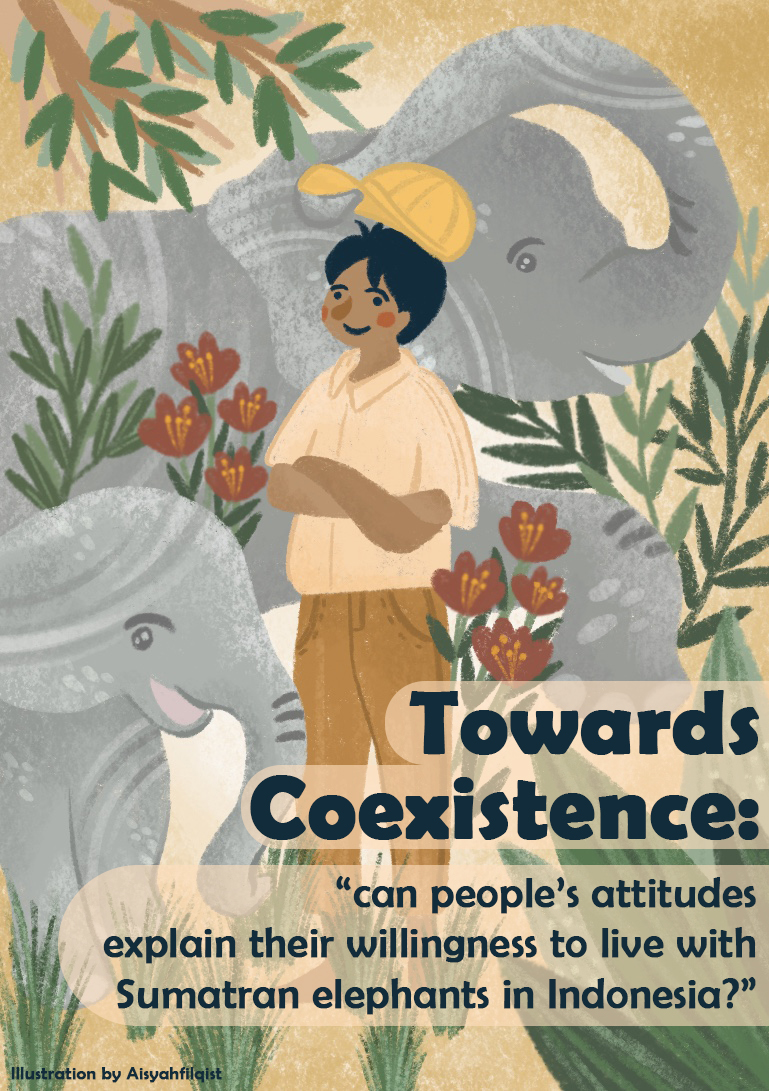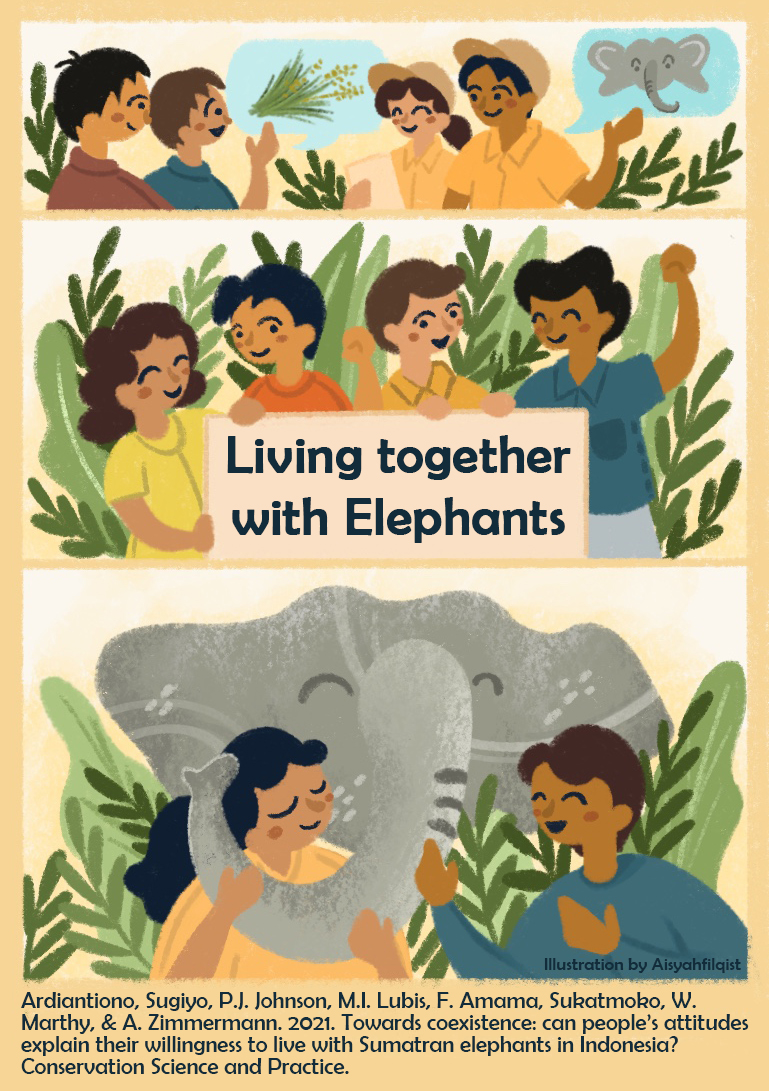News
Towards coexistence: can people’s attitudes explain their willingness to live with Sumatran elephants in Indonesia?
by Ardiantiano
Elephants can inflict substantial costs on the people who live alongside them. Human-elephant interactions can be complex. While the ecological and practical aspects of this interaction have been well explored, the human dimension of people-elephant relation has attracted rather little attention in Indonesia.
Our recently published article entitled “Towards coexistence: can people’s attitudes explain their willingness to live with Sumatran elephants in Indonesia?” aims to improve our understanding of the factors affecting attitudes towards elephants and how those attitudes influence willingness to coexist with elephants. This publication is a result of collaboration between Way Kambas National Park, Wildlife Conservation Society-Indonesia, University of Oxford, Nanyang Technological University, and Chester Zoo.
We interviewed 660 respondents in 22 villages around Way Kambas National Park, a priority landscape for Sumatran elephant conservation. The Way Kambas human community is unique – most people who live there immigrants from the island of Java. They suffer intensive crop foraging by elephants, and are renowned as role-models for their the success of methods for mitigating crop raiding.
We found that overall attitudes towards elephants were positive, apart from where human safety was concerned. These attitudes were influenced by various factors such as the respondents’ age, gender, knowledge of elephants, and how close they were crop foraging locations. Interestingly, while attitudes were positive, 62% respondents said they were not willing to live with elephants in Way Kambas. This was particularly so when elephants were perceived to be more dangerous. People who believed in the benefits and importance of elephants were more likely to be willing to live with elephants.
Through this study, we emphasize the importance of understanding the human dimension of human-elephant interactions. We hope this study will contribute to elephant conservation strategies and encourage future studies to better understand our relationship with the largest mammals in Sumatra, Indonesia.
Ardiantiono, Sugiyo, P.J. Johnson, M.I. Lubis, F. Amama, Sukatmoko, W. Marthy, & A. Zimmermann. 2021. Towards coexistence: can people’s attitudes explain their willingness to live with Sumatran elephants in Indonesia? Conservation Science and Practice, e520.
-

-
 Illustrations by Aisyahfilqist
Illustrations by Aisyahfilqist





